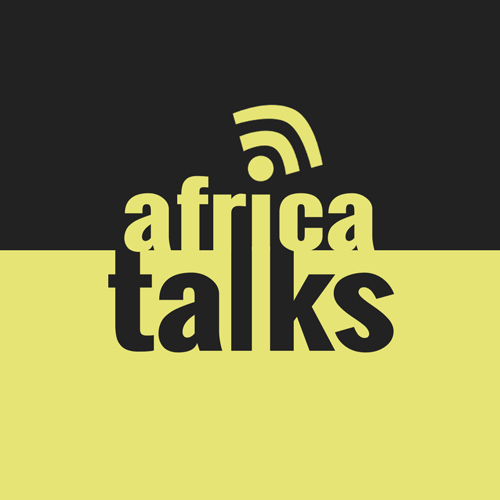Yes, It Is That Bad: An Imperfect U.N. Report Doesn’t Change the Reality in Eritrea
Victims’ Accounts are More Powerful than an NYT Op-Ed

Yes, It Is That Bad: An Imperfect U.N. Report Doesn’t Change the Reality in Eritrea
Victims’ Accounts are More Powerful than an NYT Op-Ed
A recent U.N. report may be imperfect, but that doesn’t change the reality for thousands of victims of human rights abuses in Eritrea.
For 25 years, the Eritrean government has committed egregious human rights violations against its people, according to a new U.N. report. In a June 23 New York Times op-ed, the Atlantic Council’s Africa Center deputy director, Bronwyn Bruton, summarizes some of the offenses:
“ Isaias Afwerki, a former rebel hero, has ruled Eritrea since its independence in 1993. A constitution drafted in 1997 has yet to be implemented. National elections have never been held. Opposition political parties are illegal. Many dissidents have been arrested and have not been heard from since. There are few civil society organizations and no independent media. It is tortuously difficult for Eritreans to obtain formal authorization to leave the country.”
In its June 8 report, the Commission of Inquiry on Human Rights in Eritrea, an independent body appointed by the U.N. Human Rights Commission, concluded that Eritrean government leaders committed crimes against humanity.
Despite describing human rights in Eritrea as “frightful,” Bruton criticizes the U.N.’s methods and recommendations, concluding that “things aren’t as bad as the report claims.”
By providing a litany of violations and then concluding the situation isn’t “that bad,” Bruton lowers the standard for Eritreans and shifts attention away from a government in urgent need of reform.
POSITIVE DEVELOPMENTS DON’T ERASE VICTIM’S REALITIES
The U.N.’s report, Bruton argues, paints an incomplete picture of life in Eritrea by overlooking positive developments, including progress in the health and education sectors. However, the commission’s mandate was not to document the overall status of the country and all its sectors but to investigate specific concerns and allegations.
Many good things are happening in Eritrea, but this doesn’t change the reality of thousands of victims. Bruton suggests that readers wouldn’t know about these positives after reading the report, but the commission does, in fact, acknowledge human rights developments, including access to information. The report states:
“ A number of foreign journalists were also invited to Eritrea. The commission notes that Eritreans have some access to international news, satellite television and the Internet, particularly in Asmara.”
Bruton points out that Ethiopia also violates the human rights of its citizens but receives little of the condemnation directed at Eritrea. This treatment, however unfair, doesn’t change what’s happening in Eritrea. Many countries around the world face security challenges. Ethiopia may commit human rights violations at similar levels while avoiding censure by the international community, but this does not negate the U.N.’s findings. Eritrea’s human rights violations are not committed by Ethiopia’s leaders.
COMMERCIAL INTERESTS INFLUENCE HOW U.S. THINK TANKS ANALYZE REPRESSIVE GOVERNMENTS
Bruton avoids the brash rhetoric of the Eritrean regime and its supporters, but she advances the same arguments that the government employs to defend its actions.
Bruton argues like a good lobbyist, and her employer, the Atlantic Council, received between $100,000 and $249,000 in contributions from Nevsun Resources, a Canadian mining company with operations in Eritrea. One of Nevsun’s largest projects is Bisha Mine, a venture in which the Eritrean government has a 40 percent stake.
In 2015, Bruton spoke at the annual North America conference of the Young People’s Front for Democracy and Justice (YPFDJ), a diaspora organization affiliated with the ruling party, alongside Todd Romaine, the vice president of corporate social responsibility at Nevsun.
Recent reporting illustrates the growing influence of big money on research groups traditionally relied upon to provide independent analysis. It’s reasonable to conclude that Nevsun sees its contribution to the Atlantic Council as an investment and expects to see a return.
INDEPENDENT INTERNATIONAL LEGAL MECHANISMS NEED TO LOOK INTO HUMAN RIGHTS VIOLATIONS IN ERITREA
In the coming weeks, the Human Rights Council will discuss the committee’s findings and decide if the report should be adopted. That will determine what kind of tribunal will examine the crimes and whether the case should be referred to the International Criminal Court, an organization that has yet to bring sitting leaders who face indictment to justice. The bottom line is that there must be an international legal mechanism to ensure human rights are observed in Eritrea. There is no other peaceful way for Eritreans inside or outside the country to impact policymaking.
Bruton argues that engagement with the Eritrean government is the only way to improve conditions in the country and points to the European Union’s recent allocation of €200 million in development assistance as an example of the right approach. However, she fails to mention that assistance was pledged in the midst of unkept commitments by the government of Eritrea to finally reform the national service program, which Bruton admits “needs to be rethought, and the term of service reduced to a fixed and reasonable length.”
These broken promises highlight the importance of using policy sticks along with policy carrots to ensure that commitments to secure human rights and advance development are fulfilled.
Engagement is a two-way street. The Eritrean government can and should take small steps to help pull itself out of its isolation and must be accountable to its own people. It can agree to receive a U.S. ambassador to the country and, as a gesture of goodwill, release members of the U.S. Embassy staff in Asmara held in detention since the early 2000s.
Honoring the public promises it made to not only limit the national service program but increase the pay of conscripts, even incrementally, would also signal a genuine willingness to engage. These measures could go a long way in fostering a deeper dialogue about tackling migration, settling the border stalemate with Ethiopia and lifting sanctions against Eritrea.
JUSTICE FOR VICTIMS PAVES THE WAY FOR FUTURE GENERATIONS OF ERITREANS
Whatever course the international community takes in response to the U.N. report, this stands to be a defining moment in the history of Eritrea. Those who have stood by as dutiful observers of all things Eritrea should not hesitate to err on the side of the victims of the first chapter of the history of the state. Standing up for those who have been persecuted is an act from which the region and future generations of Eritreans stand to gain.
This article is adapted from a blog post by Rufael Tecle, a graduate of Texas Law with an interest in Eritrea and Horn of Africa affairs. Read more of his writing on his personal blog, redseanation.com and follow him on Twitter at @RufaelTecle.










